We’ve all had those nights where we feel exhausted, yet for some reason, it seems impossible to get to sleep. Perhaps you’re anxious about the day ahead and you can’t get your brain to quieten down. Maybe you’re feeling a little uncomfortable after a big meal, or you just can’t get that feeling of stress to go away. Whatever the reason for your sleeplessness, the chances are you’re experiencing a temporary disruption in your circadian rhythm.
The circadian rhythm is what wakes you up or encourages you to go to sleep at night. If your rhythm ends up out of whack, either because of stress or because you’re dealing with an external problem, like jet lag, it’s tempting to turn to over-the-counter and prescription medication for help. Unfortunately, popping a sleeping pill can mean dealing with things like dependency, and drowsiness during the day.
Why not try nature’s pharmacy to cure what ails you instead, by growing these 7 sensational herbs for a better night’s sleep.
—
A variety of gardening suppliers on Garden Savvy offer the herbs listed in this blog, click here to search for herbs to help you sleep!
—
7 Herbs to Grow For A Better Night’s Sleep
1. Valerian
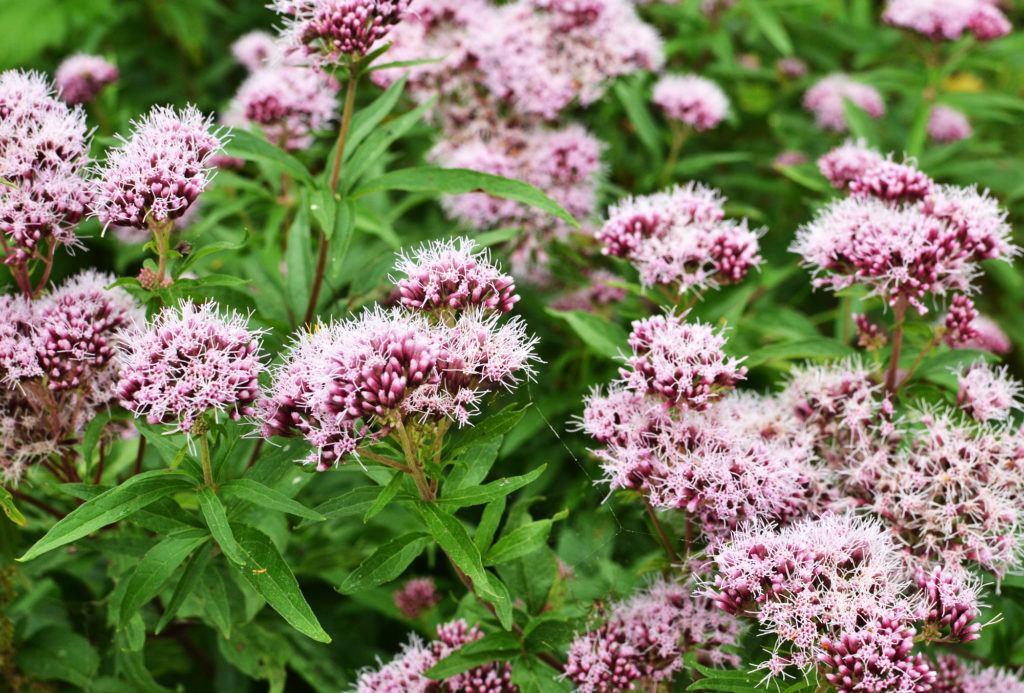
Valerian is one of the best-known plants in the world for a reason. This perennial flower has been used throughout the centuries to assist with a wide range of medical conditions, including stress, anxiety, and insomnia. Additionally, recent studies have found that consuming Valerian before bed could help to improve your chances of slow-wave sleep. That’s the kind of sleep you need for deep rest and recuperation.
Unlike other herbs, it’s worth noting that Valerian seeds don’t do well in storage. That means that you’re going to need to get to work quickly if you want these flowers to take root. Plant them in a rich starting mix a couple of months before you want to place them in the garden. Make sure that you keep the plants in the sun too!
2. Chamomile is Famous for Helping Sleep
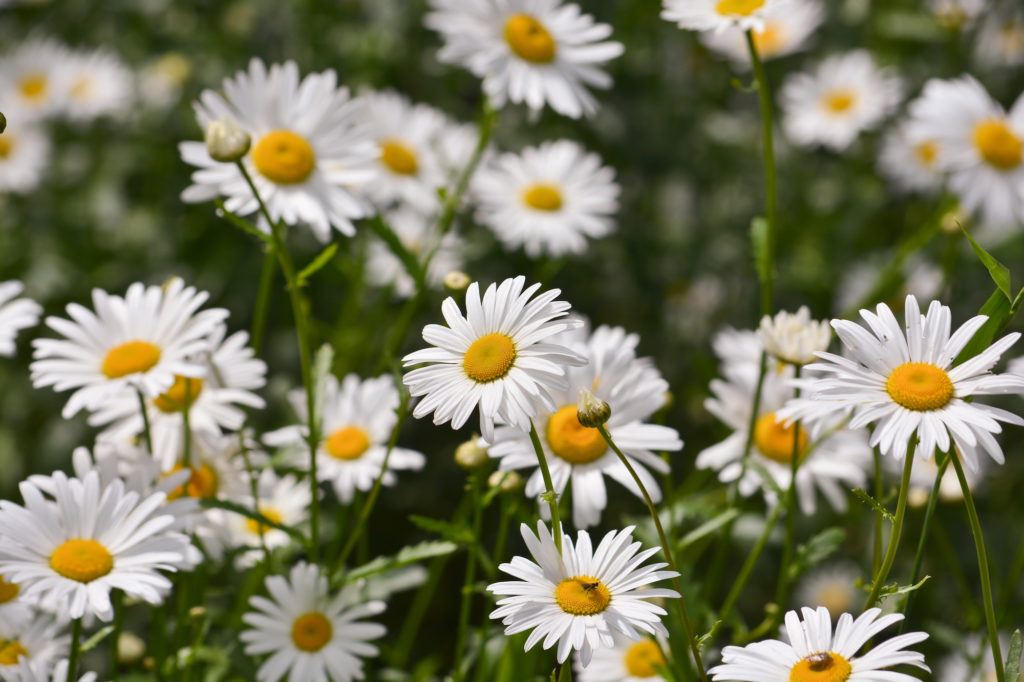
Chamomile is another herbal plant regularly associated with better sleep and relaxation. This substance has been used through the ages by Greeks, ancient Egyptians, and other communities thanks to its calm-inducing properties. According to one study published in 2005, one of the flavonoids in chamomile called Apigenin is effective at encouraging and enhancing high-quality sleeping patterns.
You can grow chamomile both indoors and outdoors, depending on how much space you have. The plants thrive best in sunlight – particularly during the germination stage. Additionally, these flowers are best in neutral pH drought-resistant soil. Once you’ve dried the flowers that you grow, brew them in a tea for a quick sleep solution.
3. Lemon Balm for Calm and Sleep
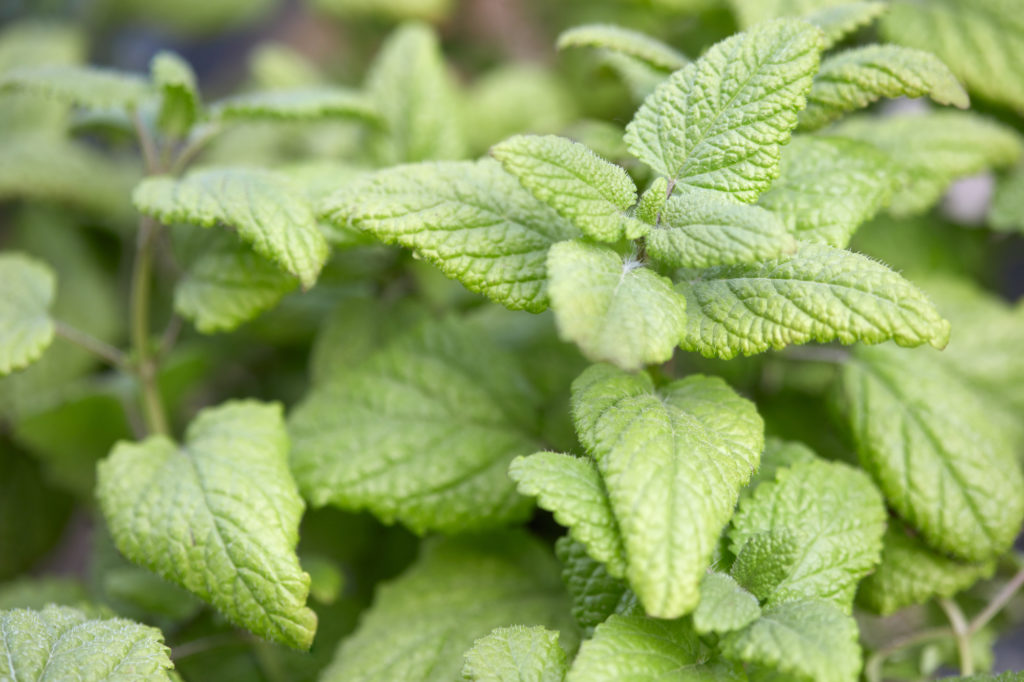
Lemon balm is actually an herb from the mint family – which is something that most people don’t realize! This delicious substance is excellent at reducing feelings of anxiety, calming the digestive system, and elevating mood too. Lemon balm is traditionally used to treat things like nervous indigestion and restlessness, but it’s great for sleeping disorders too.
Experts believe that this substance is fantastic at improving cognitive performance in certain cases as well. One tablespoon of dried lemon balm in some hot water makes for a highly soothing and delicious drink to calm your nerves before bed. Just remember that this substance isn’t always safe for people who experience hyperthyroidism.
4. Soothing, Sleepy Lavender
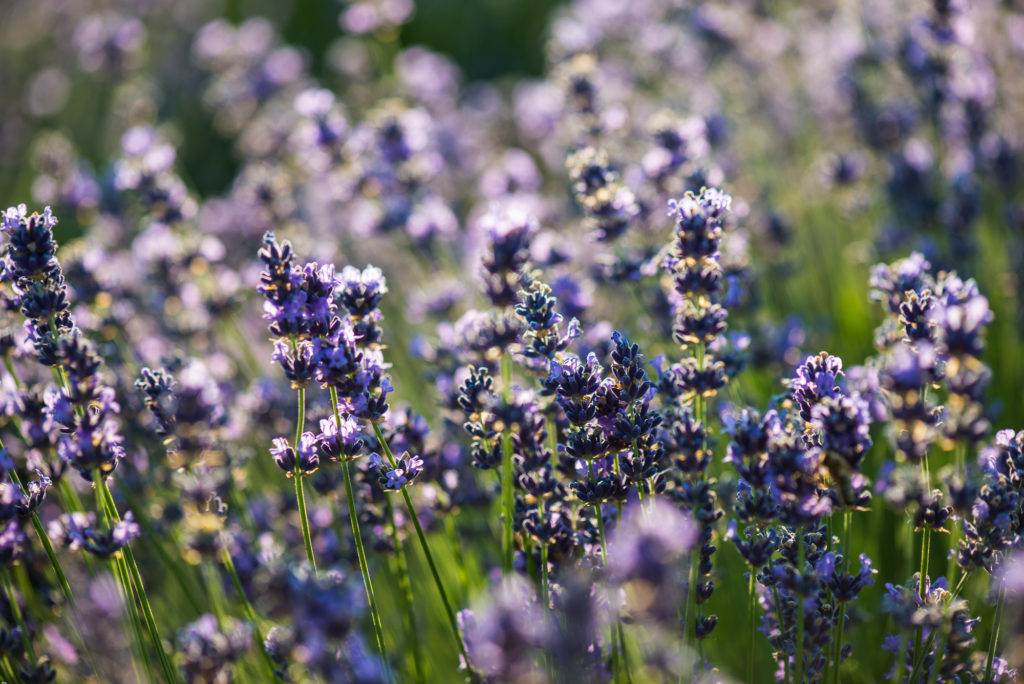
Lavender is one of the plants with the most soothing aromas in the world. Over the years, researchers have found many benefits to consuming lavender, including increased feelings of relaxation and more restful sleep. Lavender helps to lower the levels of the stress hormones like cortisol in your body. Even smelling lavender can change the way you feel and soothe your mind.
Since lavender is a relatively big plant, it’s usually a good idea to grow it outside where it has plenty of space to spread out. You’ll be able to start by sowing the seeds in a pot during spring, then planting the larger flower outside in summertime. Remember to prune your lavender plant from time to time to get the best results.
Once you’ve collected your lavender petals, dry the flowers, and put them in a small bowl on your nightstand to fill your bedroom with a relaxing aroma. Alternatively, you can grind lavender flowers to make tea.
5. Passionflower
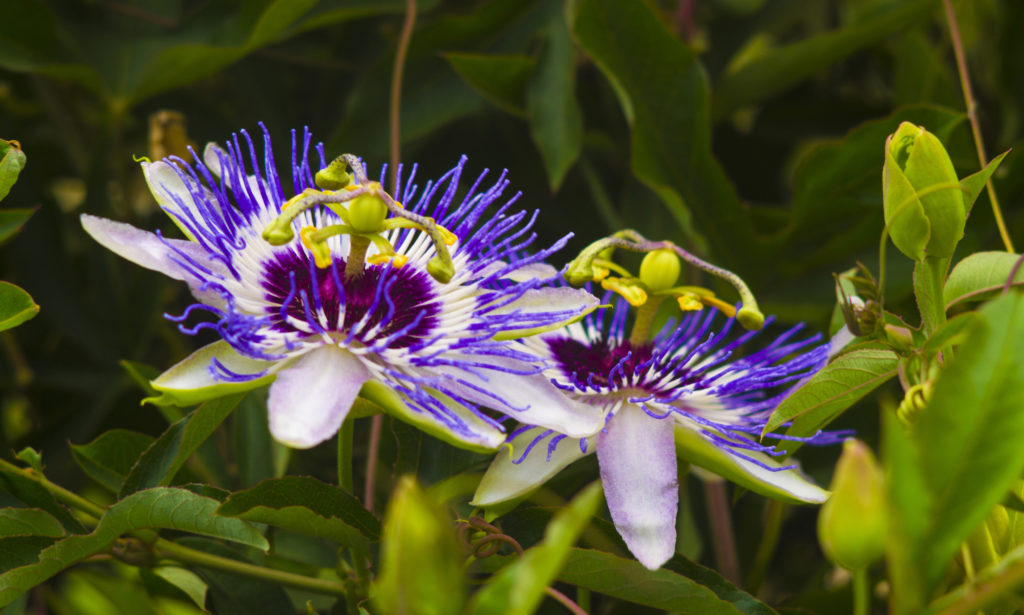
Though passionflower is more of a flower than an herb, it’s still a great natural substance to grow if you have trouble with insomnia. This stunning plant grows in tropical and sub-tropical regions. Best known for promoting restful sleep and relaxation, passionflower works by affecting the Gamma-Aminobutyric acid in your central nervous system.
A dose of passionflower before bed each night will give you everything you need to encourage a more relaxing night of sleep. You’ll need a large container for passionflower, and a location where the vine can receive plenty of sun during the day, and shade at night. Make sure that you water your passionflower well too!
Once grown, add the dried leaves, flowers, and roots of the passionflower to your bath to help you settle your mind before bed. You can also use passionflower in teas (just be careful not to use it with other sleeping medications).
6. Holy Basil
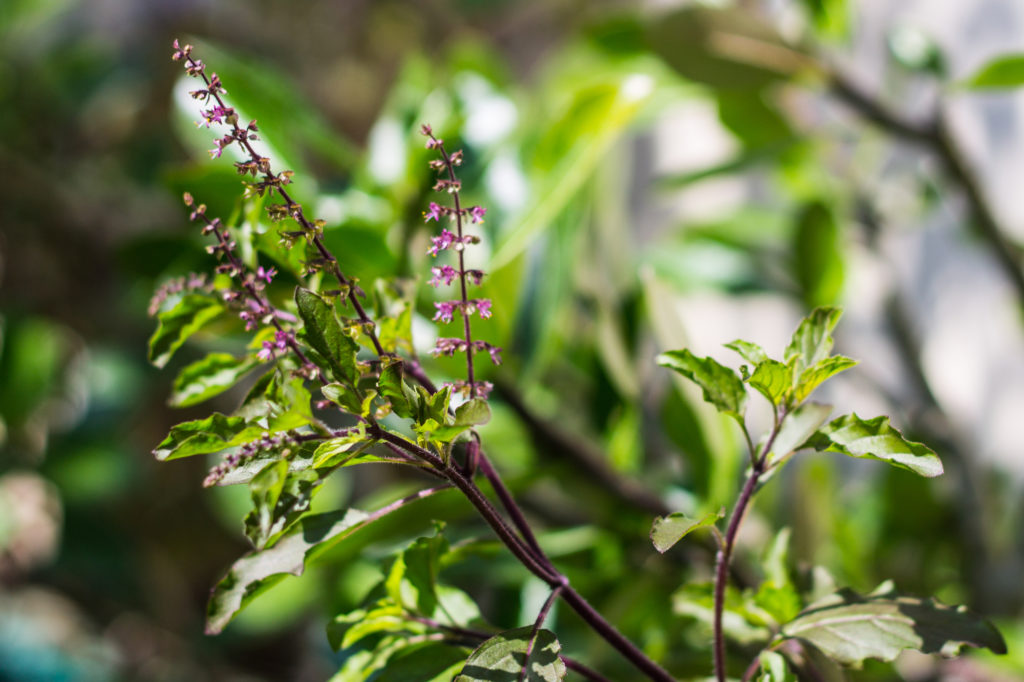
You’ve heard of basil, but what about holy basil? Native to tropical Asia, holy basil is one of the most sacred plants in the Indian region. This adaptogen herb helps the body to fight back against feelings of stress while reducing cortisol levels. The aromatic substances in holy basil are excellent at elevating mood and inducing calmness.
The great thing about holy basil is that it’s very easy to grow indoors, so it’s fantastic if you don’t have a lot of garden space. Place the seeds in a large pot over the soil, and make sure that you don’t over-water the earth. Holy basil needs to be kept out of the cold and must get about four or five hours of sunlight each day.
Once you have a fresh batch of basil, use it to make tea, or take the crushed up leads in soups and salads to jazz up your lunches with some subtle earthy flavors.
7. Grow Peppermint Easily
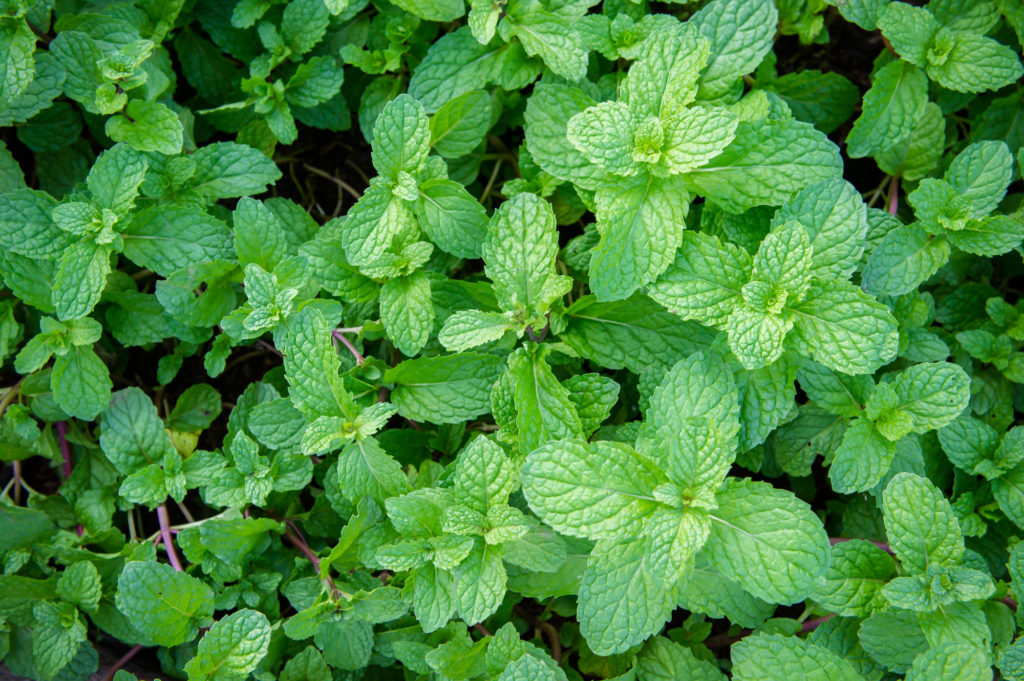
Finally, peppermint is one of the most popular herbs in the world – and it’s also excellent for improving your sleeping habits. This delightful substance has a soothing effect on the body and mind, thanks to the organic compound, menthol. Menthol helps to relax muscles, while the invigorating scent of peppermint encourages relaxation without causing you to feel overly drowsy.
You can drink peppermint tea hot or cold, which makes it excellent for use throughout the whole year. This solution is also great for things like menstrual cramps, clearing the sinuses, and improving digestion too.
You’ll be able to grow peppermint easily using cuttings or seeds. The herb grows very quickly – to the point where it can be overwhelming when left unchecked. Just remember that peppermint needs to be watered regularly.
Your Herbal Sleeping Solutions
There you have it, 7 great plants you can grow in your home or garden to improve your chance of better sleep without turning to prescription or over-the-counter medication.
What’s your favorite herb for sleeping disorders? Let us know in the comment section, or join the conversation on social media.






